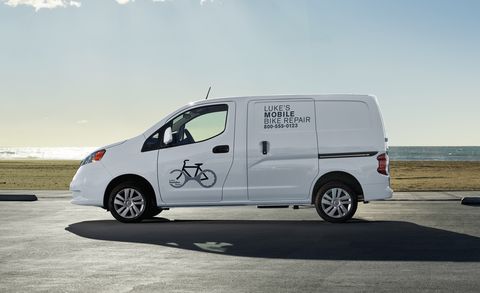Ford and Ram to Drop Compact Vans, and There Goes the Segment

Ford is reportedly pulling the Transit Connect from its lineup, and Ram will end production of the ProMaster City for the U.S.Mercedes-Benz also recently announced it’s dropping the Metris and Nissan had already ended production of the NV200.This means the compact cargo van segment is disappearing in the U.S. entirely—at least for now.
As recently as 2018, there were five brands selling compact vans in the U.S.: Chevrolet, Ford, Mercedes-Benz, Nissan, and Ram. Soon, with both the Ford Transit Connect and the Ram ProMaster City set to end production by 2023, there will be none left.
Ford has scrapped plans for a new generation of the Transit Connect that was set to be built in Mexico, according to Automotive News. The report states that the current model, which is built in Spain, will exit the U.S. market in 2023, and no direct successor is planned. A Ford spokesperson told C/D, “we do not comment on speculation.” Meanwhile, Ram will also stop importing the Ram ProMaster City to the U.S. by the end of this year, a Ram spokesperson confirmed to C/D. Like the Ford, the Ram is built in Europe, and it is based on the Europe-market Fiat Doblo.
These cancelations follow in the footsteps of Mercedes-Benz’s decision to drop the Metris from its U.S. lineup after the 2023 model year. Though it’s slightly larger and based on a rear-wheel-drive platform, there was some overlap between the Metris and the smaller, front-wheel-drive Transit Connect and ProMaster City in terms of price.
Nissan was the first to exit this segment when it dropped the NV200 after the 2021 model year. Chevrolet had also sold a rebadged version of the NV200, called the City Express, from 2015 to 2018.
Mercedes-Benz Metris

The trend started in 2010 when Ford brought over its Europe-market Transit Connect cargo van to the U.S. for the first time. It was meant to offer small-business owners and urban delivery services a cheaper, more maneuverable, and more fuel-efficient alternative to Ford’s massive truck-based E-series vans. Ford also offered a passenger version of the Transit Connect with rear seats and windows. Nissan joined in for the 2013 model year with the NV200, which it sold as a cargo van. There was also a taxi version of the NV200, although Nissan was ultimately unsuccessful in signing a contract to be the exclusive provider of New York City’s taxi fleet. Even still, many NV200s and Transit Connects are in use today as taxis. Ram started selling the ProMaster City for 2015, and Mercedes first brought over the Metris, sold in Europe as the Vito and V-class, for 2016.
What’s causing these automakers to abandon small vans now? For one thing, sales have been declining for the past few years. The Transit Connect sold 41,598 units in the U.S. 2019 but managed to move just 26,112 in 2021; both of these figures pale in comparison to the full-size Transit, which racked up over 130,000 sales in both 2019 and 2020. The story is similar over at Ram, where the larger ProMaster regularly outsells its smaller City sibling by a factor of five to one.
The commercial van segment is also evolving to include electric models, which requires a big investment in new platforms and battery packs. Ford has already begun selling the e-Transit, while GM has created a new division called BrightDrop that plans to sell electric cargo vans to commercial clients. Mercedes, too, has announced an electric version of its full-size Sprinter van, the eSprinter, that’s slated to begin production in 2023.
Of course, it’s also possible that the scalability of electric vehicle platforms could spell a return of compact vans at some point in the near future. Startup automaker Canoo has already shown its idea of what a small EV van could look like. Although we’re not sure if that vehicle will become a reality, American small-van enthusiasts probably shouldn’t lose hope quite yet.
This content is imported from {embed-name}. You may be able to find the same content in another format, or you may be able to find more information, at their web site.



